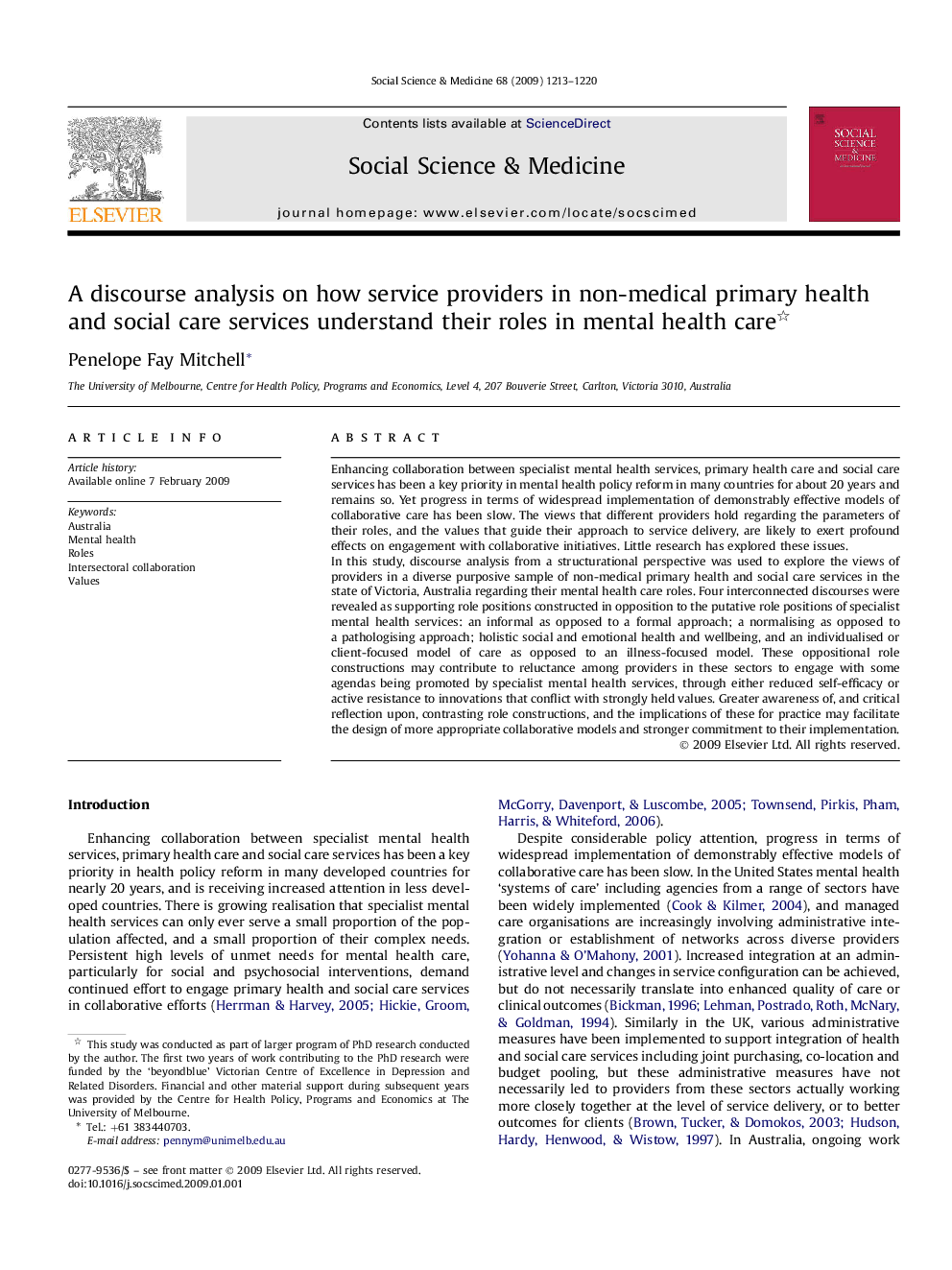| کد مقاله | کد نشریه | سال انتشار | مقاله انگلیسی | نسخه تمام متن |
|---|---|---|---|---|
| 953764 | 927603 | 2009 | 8 صفحه PDF | دانلود رایگان |

Enhancing collaboration between specialist mental health services, primary health care and social care services has been a key priority in mental health policy reform in many countries for about 20 years and remains so. Yet progress in terms of widespread implementation of demonstrably effective models of collaborative care has been slow. The views that different providers hold regarding the parameters of their roles, and the values that guide their approach to service delivery, are likely to exert profound effects on engagement with collaborative initiatives. Little research has explored these issues.In this study, discourse analysis from a structurational perspective was used to explore the views of providers in a diverse purposive sample of non-medical primary health and social care services in the state of Victoria, Australia regarding their mental health care roles. Four interconnected discourses were revealed as supporting role positions constructed in opposition to the putative role positions of specialist mental health services: an informal as opposed to a formal approach; a normalising as opposed to a pathologising approach; holistic social and emotional health and wellbeing, and an individualised or client-focused model of care as opposed to an illness-focused model. These oppositional role constructions may contribute to reluctance among providers in these sectors to engage with some agendas being promoted by specialist mental health services, through either reduced self-efficacy or active resistance to innovations that conflict with strongly held values. Greater awareness of, and critical reflection upon, contrasting role constructions, and the implications of these for practice may facilitate the design of more appropriate collaborative models and stronger commitment to their implementation.
Journal: Social Science & Medicine - Volume 68, Issue 7, April 2009, Pages 1213–1220